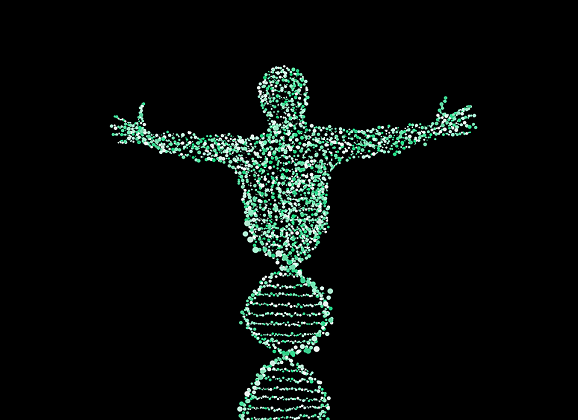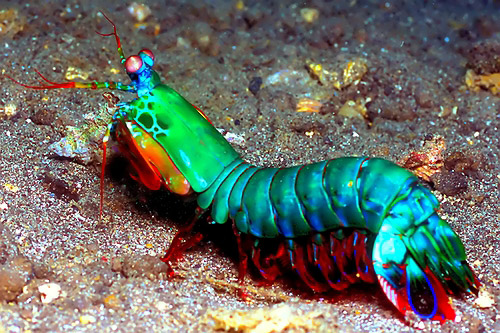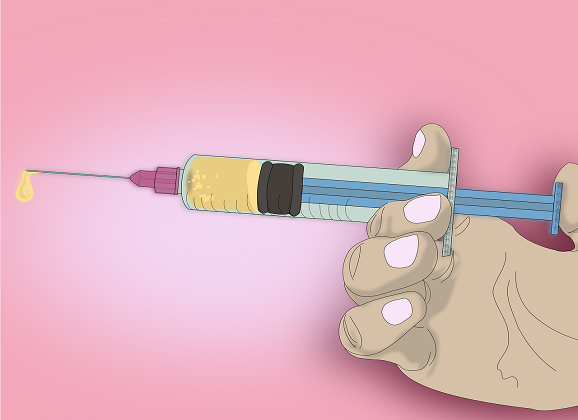Can We Inherit Our Beliefs?
The science of today is the technology of tomorrow. — Edward Teller
Today, I’m going to focus on a single study, a study so cool that when I first heard of it last week, I immediately knew what I’d be writing about today.
Researchers took 2-month-old adult male mice and classically conditioned them to be afraid of a particular smell (acetophenone, which smells a little like cherry blossoms). That is, the mice were placed in a device (pictured left), where the researchers would release the odor, then moments later shock their feet.
In other words, these mice were forming a very negative attitude toward the smell of acetophenone.
We ourselves form attitudes all the time. You don’t like playing baseball after getting hit a number of times. We don’t like certain people after they’re mean multiple times.
But here’s the question: Can we pass on those environmentally learned attitudes? If those mice who learned to hate acetophenone had babies, how would they react to the smell?
 THE RESULTS
THE RESULTS
A great amount of past research on rodents has shown how a mother’s stress during pregnancy can result in negative outcomes for her pups. For example, pups in utero while their mother underwent stress inductions (e.g., she was temporarily kept in tight Plexiglas enclosures with bright lights pointed at have) have poorer memory and greater emotional volatility.
This research has been corroborated and nuanced by a lot of other research. But, what has received much less empirical work is the possible “trans-generational” effects I began this post with.
Can a child inherit the “sins” of the father?
Ten days after the male mice had learned to despise the smell of acetophenone, they were allowed to mate with female mice, before being immediately and permanently separation from the mother and her future pups.
Then, the researchers studied the offspring as they grew. Not only would these mice more quickly identify the smell of acetophenone, they produced a most unusual startle response to an otherwise pleasant smell…
EPIGENTICS
For a while, the idea that mammals could inherit attitudes was presumed preposterous.
The logic goes like this: Experiences in your environment (e.g., learning) cannot change your DNA. Your DNA (i.e., the blueprint behind everything that is you) is set for life. When it comes to our children, the only thing we can pass onto them is our DNA. So how could something you learned—something that wasn’t or isn’t in your DNA—be passed on to your offspring?

The basic idea goes like this: Imagine your DNA is like a string of Christmas lights made up of four different colors. Although there’s no way for you to switch out or even add any bulbs, you can unscrew and tighten them a little. So, when something in your environment creates a strong attitude, your body can unscrew/tighten a few of those bulbs associated with the attitude.
With today’s experiment, those father mice had their Christmas lights DNA-bulbs screwed in a little more tightly for the smell of acetophenone. So, when they passed on their DNA to their children, those same lights came with the same bulbs tightened.
Now, I’m doing a big disservice to the real science behind this (it involves a chemical process known as methylation that activates or deactivates certain genes causing different phenotypic expressions), but you get the gist.
Importantly, this research has some startling implications for us humans. For example, can traumatic events in a parent’s life be passed down through epigenetics to their children? Some research suggests it can.
Examining the genetic code of Holocaust survivors and their adult children, researchers found the same epigenetic gene expression across generations. Other research has also found similar evidence when looking at communities who experienced a famine. These “annotations” on people’s DNA transferred even as far as their grandchildren.
So, although the science on epigenetics is relatively young, it is a fascinating one with lots of potential real life applications.
And the plot to a great sci-fi movie.
Sciencely,
jdt
Everyday Psychology: If you noticed, all of the examples today showcasing the power of epigenetics were focused on negative attitudes. Alternatively, are there positive attitudes that could be learned strongly enough to be passed onto one’s children? If you could technologically choose to have one attitude (positive or negative) passed down to your children, what would it be?
Dias, B. G., & Ressler, K. J. (2014). Parental olfactory experience influences behavior and neural structure in subsequent generations. Nature neuroscience, 17(1), 89.
Kaati, G., Bygren, L. O., & Edvinsson, S. (2002). Cardiovascular and diabetes mortality determined by nutrition during parents’ and grandparents’ slow growth period. European journal of human genetics, 10(11), 682.
Maccari, S., Krugers, H. J., Morley‐Fletcher, S., Szyf, M., & Brunton, P. J. (2014). The consequences of early‐life adversity: Neurobiological, behavioural and epigenetic adaptations. Journal of neuroendocrinology, 26(10), 707-723.
Yehuda, R., Daskalakis, N. P., Bierer, L. M., Bader, H. N., Klengel, T., Holsboer, F., & Binder, E. B. (2016). Holocaust exposure induced intergenerational effects on FKBP5 methylation. Biological psychiatry, 80(5), 372-380.










Great read, JDT! And you’re right that many studies focus on the negative impacts, not necessarily the positive ones.
Here are some epigenetics articles you may be interested in with a positive spin!
1. https://www.whatisepigenetics.com/affectionate-moms-with-depression-may-epigenetically-buffer-their-child-from-stress/
2. https://www.whatisepigenetics.com/4-things-youre-forgetting-to-thank-mom-for-this-mothers-day/
3. https://www.whatisepigenetics.com/cuddling-can-leave-positive-epigenetic-traces-babys-dna/
4. https://www.whatisepigenetics.com/mediterranean-diet-pregnancy-epigenetically-reduce-childs-disease-risk/
Keep up the great work, and thanks for the link back!
Bailey, thank you for sharing those links! Those were super fascinating articles–and a great complement to the majority of negative outcomes epigenetics can result in. And you’re very welcome for the link 😉 You have a great site!
Wow, I had no idea, fascinating read.
Great! I’m glad you enjoyed it 🙂
Great overview of some very interesting findings, Jake! Thank you.
Thank YOU for reading–and the comment 😉 Both are much appreciated. Looking forward to having you officially at OSU soon!